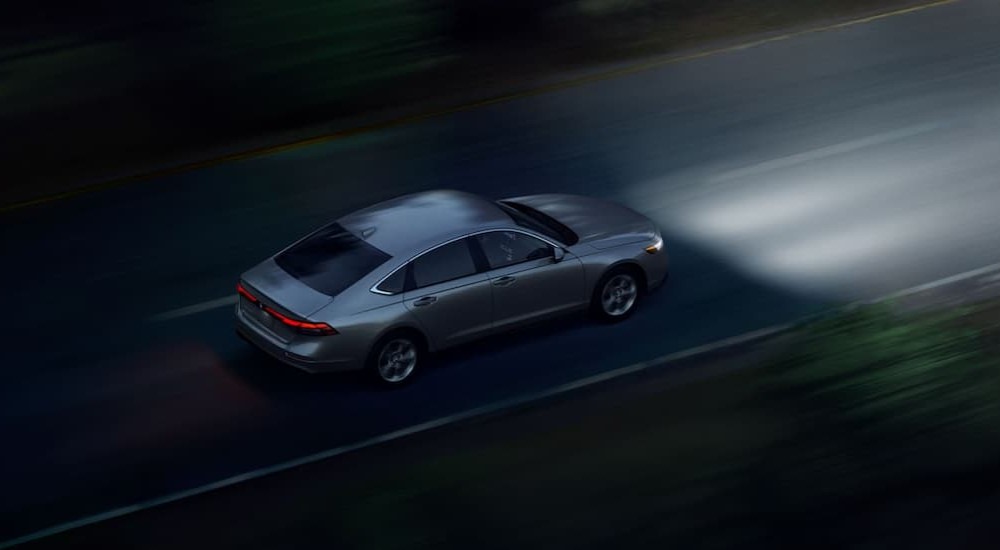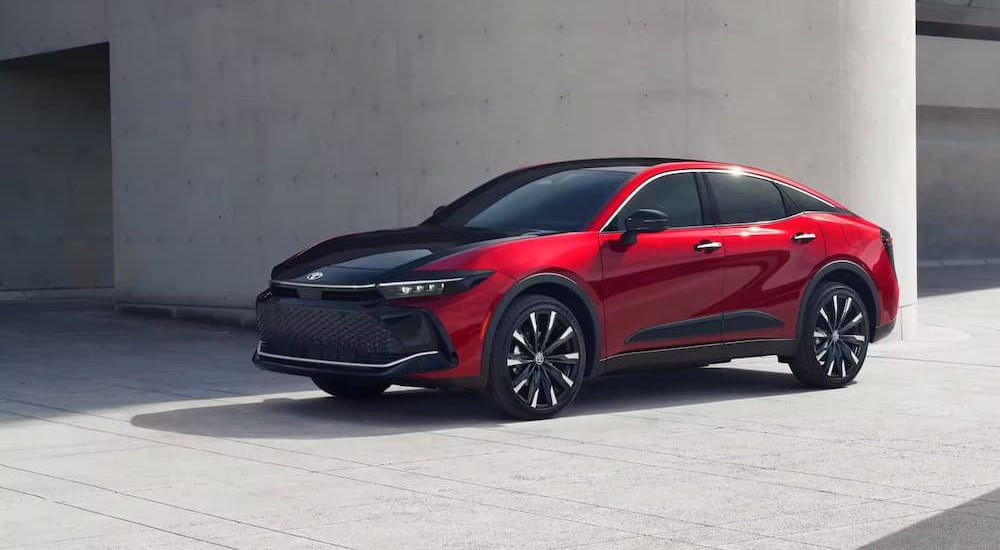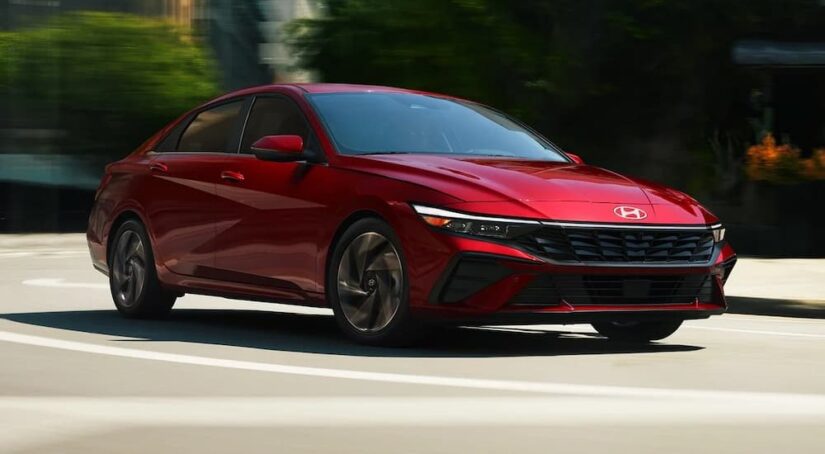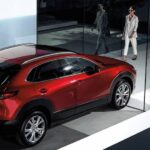In a world that’s always on the hunt for bigger and better, it’s all too easy to forget about the reliable old favorites. The growth of the SUV and pickup segments has come at the cost of sedan sales, which have been on a steady decline since 2002. The segment is hardly the industry juggernaut it once was, but things have looked a little better as of late with sedan sales growing by almost two percent between 2021 and 2023. This growth has been driven in part by the emergence of new hybrid and all-electric vehicles (EVs), which have slowly begun to replace the traditional gas-powered models of old. So, what’s new in the sedan segment for 2024, and which models are worth a test drive?
We’ve compiled a short list of some of the sedans we’re most excited to test drive in the coming year, including both traditional and EV models. From a best-selling Honda and value-packed Hyundai to an unusual new offering from Toyota, there are a lot of alluring models coming down the pike in 2024. Read on as we explore some of the most value-packed models on the market and see how sedans are keeping pace in an increasingly competitive market.
The 2024 Hyundai Elantra
The Elantra makes our list of the best sedan buys for two simple reasons: style and price. The compact sedan just so happens to be loaded with interior tech, next-generation safety features, and is one of the most spacious models in its class, but its affordability and sporty design are still the Elantra’s biggest selling points.
Let’s start with the styling. The Elantra is an eye-catching sedan, no matter which way you look at it. With bold body lines, sleek front fascia, and fastback rear end, the Elantra goes out of its way to avoid looking like your typical, budget-oriented compact sedan. The sedan’s aesthetic success can largely be credited to Hyundai’s embrace of a new design language focused on what it calls “parametric dynamics.” The design, which uses an algorithmic approach rather than direct manipulation, is able to create entirely new designs, resulting in a fresh exterior that’s unlike anything else on the market. Famously used by architects like Antoni Gaudi, the parametric process is expected to find its way into the design of future Hyundai models.
Fully redesigned as recently as 2021, the Hyundai gets another facelift going into the 2024 model year. From new exterior lights and wheels to two new color options including Exotic Green and Ultimate Red, the Elantra is only getting more rakishly handsome as it ages. The interior holds up its end of the bargain, matching the futuristic exterior with a host of sleek design elements that include a wrap-around dashboard and center console, two large infotainment and digital gauge cluster displays and an LED strip that runs the length of the dashboard’s air vent.
Then there’s the price. With the entry-level SE trim retailing for $21,475 and the range-topping Limited hybrid trim ringing in at just around $27,000, the Elantra represents a real value no matter which model you decide on. This affordability has won the compact no shortage of praise since the seventh-generation model debuted in 2021.
Finally, we have the efficiency of the Hyundai Elentra to discuss. The 2024 compact boasts an EPA-estimated 32 MPG in the city and 42 MPG on the highway when optioned with the ultra-efficient 2.0-liter four-cylinder engine.

Honda Accord
If you’re looking for a reliable, affordable sedan in 2024, there’s no reason to reinvent the wheel. The Honda Accord has been the midsize sedan against which all midsize sedans are judged since its debut in 1976, and that doesn’t look to be changing anytime soon. Offering the ideal mix of practicality, size, and fuel economy, the Accord’s features speak for themself.
The 2024 model is poised for success thanks to a massive redesign that saw Honda usher in the sedan’s 11th generation for 2023. New engine options, tech features, and a sleek new exterior set the 11th-gen Accord apart from its predecessors, but the sedan’s biggest selling point can only be experienced from behind the wheel. Honda has long prioritized the driving experience, and the 2024 Accord is a great showcase of these efforts. Between its sharp, responsive handling, crisp steering, and lack of body motion, the $28,000 Accord provides a pleasurable, relaxing ride that almost approaches what one might experience in a much more expensive luxury model. Honda seems to have paid particularly close attention to the sedan’s suspension this time around, and the results speak for themselves.
While Honda has found a lot of success by sticking to the tried and true Accord formula, the brand also knows how to evolve with the times. Case in point: the sedan’s ever-expanding use of a hybrid powertrain. While the hybrid setup was once an optional feature for certain trims, it’s now become the sole offering for more than half of the trim ladder. The Sport, EX-L, Sport-L, and Touring models are only available with the hybrid powertrain, which consists of a 2.0-liter four-cylinder engine and two electric motors that give the sedan 204 horsepower. Non-hybrid models will get a 192-horsepower turbocharged 1.5-liter four-cylinder engine under the hood. According to EPA testing, the hybrid Accord boasts 51 MPG in the city and 48 MPG on the highway, while the purely gas-powered version lags behind at 29 MPG in the city and 37 MPG on the highway.
Cargo space, comfort, and a tech-heavy interior are some of the Accord’s other major selling points, but as with any Honda, the sedan’s distinct market advantage all comes down to reliability.
Toyota Crown
Large sedans once ruled the road but have largely disappeared in favor of new, higher-riding crossover SUVs. Automakers have rushed to meet this new demand, nixing their large sedans for crossovers and leaving the market with relatively few options to choose from. Toyota’s own offering in the full-size Avalon went the way of the dodo in 2022 but was soon replaced with a unique new model that blurs the line between the sedan and crossover segments.
The Crown isn’t actually new: it was available on the North American market for the sedan’s first four generations, but was replaced by the Corona Mark II in 1972. The rest of the world has embraced the Crown as a traditional large sedan, but upon returning it to the U.S. market, Toyota made some key changes to the formula. First off, Toyota has graced the Crown with a lifted suspension that allows it to sit a little higher off the ground than your traditional sedan. This tweak––aimed at enticing SUV drivers back into the sedan fold––is complemented by a few other unusual superlatives: the car is only offered with a hybrid powertrain, and all Crown trims come standard with all-wheel drive.
The Crown is also decidedly luxurious, offering the sorts of amenities, premium materials, and comfort features that’ll have you scanning the front fascia for a Lexus badge. It’s an interesting mix of features, showing just how SUV-like a car can become while still retaining its sedan status. With less than two years on the market, only time will tell how drivers will respond to Toyota’s sedan/SUV hybrid, but if you ask us, it’s certainly worth a closer look.
Toyota’s decision to nix a purely gas-powered setup in favor of two hybrid options might seem a little risky, but the Crown’s fuel economy and performance credentials speak for themselves. XLE and Limited models are powered by a 2.5-liter four-cylinder engine paired with three electric motors and a continuously variable automatic transmission (CVT). That pairing is good enough to produce some 236 horsepower, providing a lively ride that’ll send you from zero to 60 mph in 7.2 seconds. Those seeking a little more giddy up and go should look into the range-topping Platinum version, which actually produces significantly more power despite having two fewer electric motors.
The difference comes down to the addition of forced induction, with a turbocharged 2.4-liter engine and rear-axle-mounted electric motor giving the sedan a combined 340 horsepower. A 5.2-second zero-to-60 time is sure to satisfy most drivers, as is the addition of a six-speed automatic transmission in place of the eCVT. Adaptive dampers keep the ride smooth, despite all the power, which brings up an important point: the Crown might be powerful, but it’s not exactly sporty. Toyota has tuned the car to provide a traditional sedan experience that prioritizes comfort above pure driving dynamics, but it’s still a well-rounded, mature choice for those who have put their rubber-burning days behind them.
Adding to that maturity is the Crown’s fuel economy stats. Historically, large sedans tend to be pretty thirsty, but the hybrid powertrain has gone a long way in helping the Crown to shed that reputation with an EPA-estimated 42 MPG in the city and 41 MPG on the highway on the XLE and Limited models. The Platinum’s more powerful setup sees those numbers drop to 29 MPG in the city and 32 MPG on the highway, but that’s still a respectable showing given the Crown’s size. Limited and Platinum drivers will enjoy a laundry list of premium features, including leather upholstery, a panoramic sunroof, and ventilated front seats, but even the entry-level XLE comes standard with eight-way power-adjustable front seats with heat, ambient interior lighting, and dual-zone automatic climate controls.

What Does the Future Hold?
Rumors of the sedan’s demise have been greatly exaggerated. The segment might not be the world-beater it once was––largely owing to the increased popularity of crossover SUVs––but for the right sort of driver, they still provide an excellent mix of value, style, and performance. The introduction of hybrid powertrains has made larger sedans more efficient than ever, and that’s not to mention the all-electric models that have hit the market in recent years. Sedans like the Honda Accord and Hyundai Elantra have remained some of the industry’s most beloved models for obvious reasons, but newcomers like the Toyota Crown are out to prove that the segment still has a few tricks up its sleeve. The Crown also provides an intriguing look at what the future could hold for the segment, with the addition of all-wheel drive and lifted suspensions creating a whole new take on the traditional sedan. One thing is for sure: if you’re searching for value, sedans provide exceptional bang for the buck.



